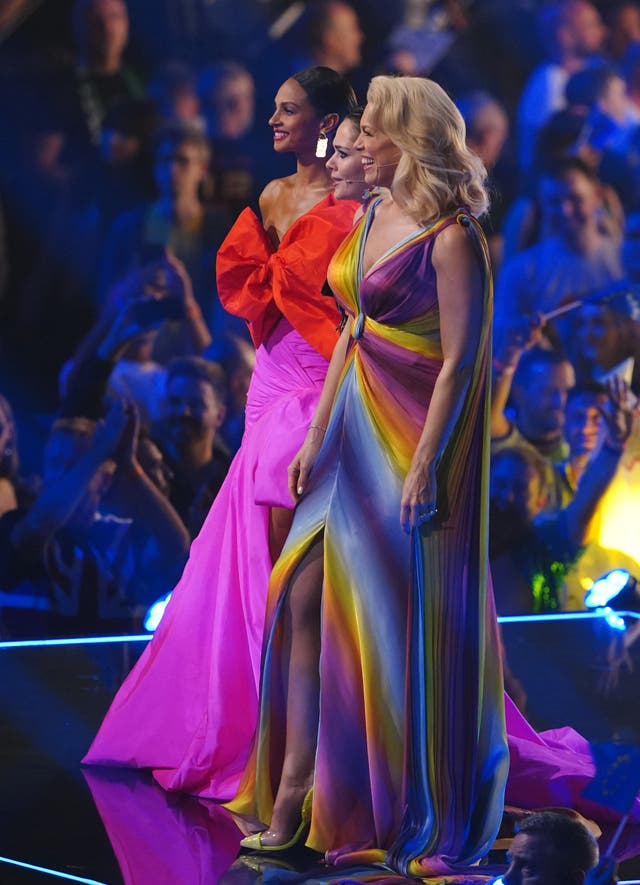‘Douze points’ – Catherine Tate to deliver UK’s jury scores in Eurovision final
UK broadcasters have shaken up their schedules ahead of the event.

Catherine Tate has been announced as the UK’s spokeswoman for the grand final of the Eurovision Song Contest.
The actress and comedian, 53, will deliver the results of the country’s national jury – including the coveted “douze points” – live from the M&S Bank Arena in Liverpool on Saturday.
It will be the first time a UK spokesperson has announced the scores from the same location as the contest itself.
She said: “It’s very exciting to be announcing the iconic ‘douze points’ at Eurovision. It’s just a foot in the door really as next year I hope to be the UK entrant.”
In taking up the role, Tate follows in the footsteps of AJ Odudu, Amanda Holden, Nigella Lawson, Mel Giedroyc, Richard Osman, Cheryl Baker and Katrina Leskanich from Katrina And The Waves among others.
The appearance comes ahead of her much-anticipated return to Doctor Who.
The BBC show will return in November with three special episodes to coincide with the 60th anniversary – with David Tennant as the 14th Doctor and his companion Tate coming back as Donna Noble.
Eurovision is widely known for its fiendishly complex voting system.
The public votes make up 50% of the total vote, with the other half determined by a professional jury in each participating country.
After viewers have cast their votes, a spokesperson from the participating countries is called in to present the points of their jury – which range from the maximum “douze points” (12) to zero.

After the presentation of the scores from the juries, the public points from all participating countries are combined, providing one score for each song.
The announcement comes after the contest began in earnest on Tuesday night with the first of the two live semi-finals.
Sweden, Norway and Finland were among the 10 countries to qualify for the grand final, while Ireland’s Wild Youth failed to impress the voting public and were among the five to drop out.
Ireland has participated in Eurovision more than 50 times and has a record seven wins, but has failed to qualify for the final since Ryan O’Shaughnessy entered with his song Together in 2018.
Eurovision boss Martin Osterdahl has said organisers expect 85 million people to watch the grand final globally in some capacity.
UK broadcasters have shaken up their schedules ahead of the event, with Britain’s Got Talent not airing on Saturday evening.





